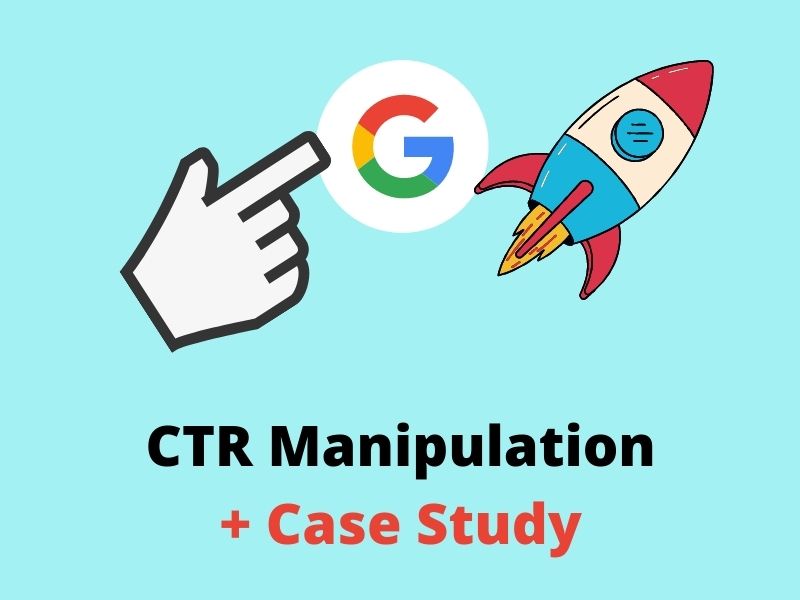LinkDaddy CTR Manipulation: Specialized Solutions for Improved Web Web Traffic
Discovering the Connection In Between CTR Manipulation Providers and User Habits
In the world of electronic advertising, the impact of click-through rate (CTR) control solutions on customer behavior continues to be a complex and appealing topic. As online platforms significantly rely upon CTR metrics to determine the success of web content, items, and services, comprehending just how these manipulated rates influence customer engagement and decision-making processes is vital. The interaction between CTR adjustment and customer habits questions about credibility, trustworthiness, and the moral implications of such practices. By exploring the complex connection in between CTR adjustment solutions and customer actions, fascinating understandings emerge that may reshape our understanding of electronic marketing methods and their effects on consumers.
Effect of CTR Control on Behavior
Assessing the influence of Click-Through Rate (CTR) adjustment on customer habits reveals crucial understandings right into the dynamics of online engagement. CTR adjustment includes artificially inflating the variety of clicks on a certain link or advertisement to trick individuals and online search engine. This practice can cause a distorted assumption of a website's popularity or importance, eventually influencing individual behavior.

Moreover, CTR adjustment can skew the data made use of by formulas to customize customer experiences. This can cause users being offered web content that does not align with their preferences or rate of interests, ultimately bring about a decline in individual contentment and interaction. Recognizing the impact of CTR adjustment on user actions is necessary for preserving transparency and count on on-line interactions.
Individual Interaction With Adjusted CTR
Customer engagement with manipulated CTR information often causes manipulated assumptions of on-line web content appeal and importance. When customers interact with content based on artificially inflated Click-Through Fees (CTR), they might believe that specific info, items, or services are much more prominent or credible than they actually are. This can result in users choosing based upon deceptive information, bring about possibly undesirable results.
Engagement metrics like likes, shares, comments, and time invested in a web page are usually affected by CTR control. Individuals may be more likely to involve with material that appears to have higher involvement prices, better bolstering the cycle of skewed perceptions. As a result, web content designers and marketers might prioritize generating content that produces high CTR instead than concentrating on creating truly useful and appropriate material.

Psychological Effects of CTR Manipulation

In addition, the psychological effects of CTR adjustment can additionally show up in transformed decision-making processes. Individuals might be a lot more inclined to click on content entirely based on its perceived appeal, as opposed look at this site to its real worth or significance to their needs. This behavioral change can cause a surface interaction with online material, where users might overlook premium yet less prominent offerings for those with artificially enhanced CTRs.
Fundamentally, the psychological ramifications of CTR manipulation highlight the value of maintaining openness and authenticity in on the internet interactions to promote genuine individual engagement and depend on.
Ethical Considerations in CTR Adjustment
CTR manipulation raises concerns about tricking customers, misshaping information analytics, and jeopardizing the reputation of online web content. By unnaturally blowing up CTR, customers might be misdirected right into clicking on web links or advertisements they would certainly not have actually selected or else, leading to a disingenuous online experience.
One more honest aspect to ponder is the justness of controling CTR to get an unjust advantage over rivals. Taking part in such methods not only goes against concepts of justice but additionally weakens the count on that individuals place in on-line platforms. It is vital for services and digital marketing experts to maintain honest requirements in their practices to ensure openness, credibility, and lasting sustainability in the on-line setting.
Ramifications for Digital Advertising And Marketing
CTR manipulation can lead to skewed data analytics, misdirecting online marketers into thinking that their projects are doing far better than they in fact are. When individuals understand that CTRs have actually been manipulated, it can erode count on in the brand name, leading to long-term negative consequences for consumer commitment and brand track record.
In addition, the use of CTR control solutions can create an unreasonable competitive landscape, where firms that take part in such methods acquire a man-made benefit over those that comply with honest marketing standards. This can suppress technology and creative thinking in electronic advertising, as success becomes even more concerning control strategies than delivering real worth to consumers. Eventually, the implications of CTR manipulation for digital marketing expand beyond short-term gains, impacting the general sustainability and credibility of marketing initiatives in the electronic realm.
Conclusion
To conclude, the partnership in between CTR control services and customer actions is complicated and multifaceted. The impact of CTR manipulation on actions, individual interaction with controlled CTR, psychological results, honest considerations, and effects for electronic advertising and marketing all play a duty fit this relationship. Recognizing these dynamics is important for marketing experts and researchers alike in order to navigate the ethical effects and take full advantage of the effectiveness of their electronic advertising and marketing techniques.